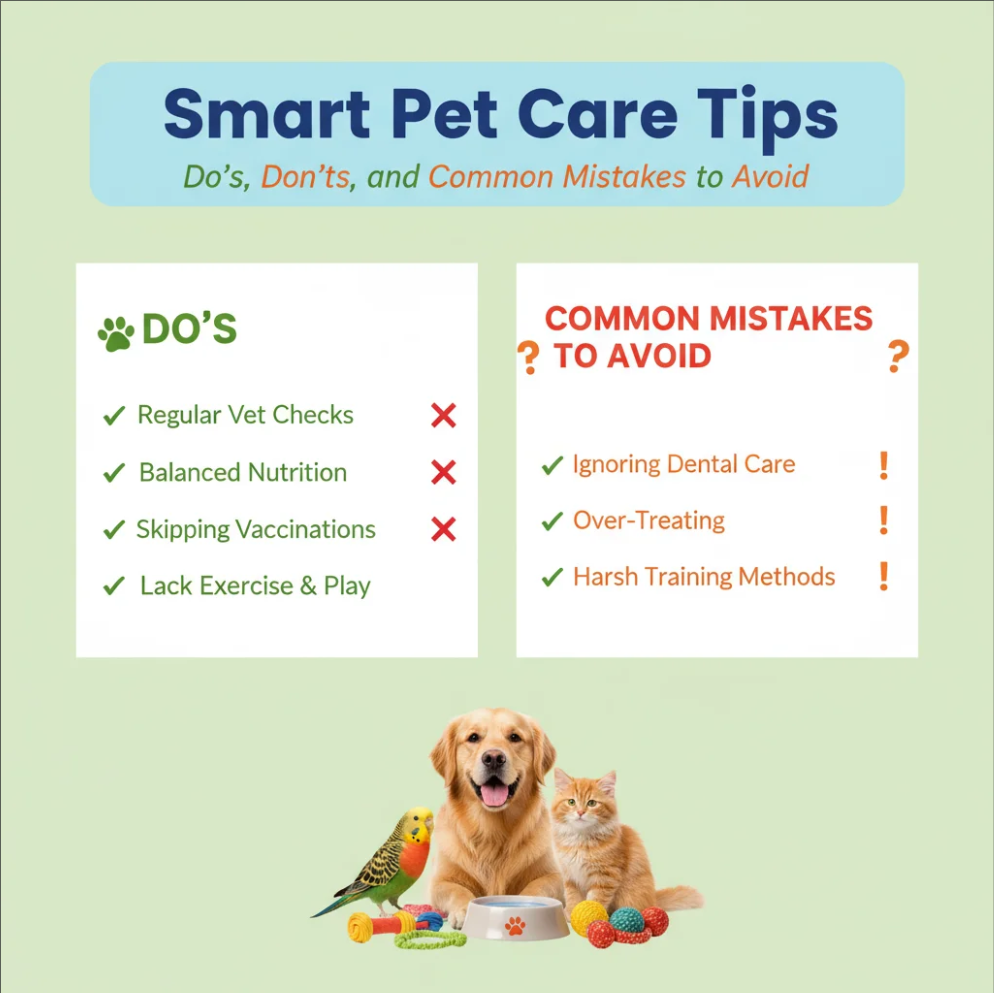Your Modern Pet Care Guide — Tech, Trends, and Training Tips
Caring for pets has evolved beyond traditional routines. Today’s pet owners combine technology, contemporary trends, and tried-and-true training techniques to ensure their companions thrive. Whether you have a playful pup, a curious cat, or an exotic friend, modern pet care offers tools and insights for every household.
🐾 1. Leveraging Technology for Pet Health
Tech innovations are transforming how we monitor and care for pets:
- Smart collars track activity, location, and even vital signs
- Automatic feeders and water dispensers ensure pets stay nourished on schedule
- Pet cameras and apps let owners check in, dispense treats, and communicate remotely
✅ Tip: Technology is most effective when combined with regular vet check-ups and attentive observation.
🐕 2. Following the Latest Pet Care Trends
Modern pet care trends emphasize well-being, enrichment, and lifestyle integration:
- Holistic diets with high-quality proteins, natural ingredients, and supplements
- Interactive toys and puzzles that stimulate mental and physical activity
- Pet-friendly environments in homes, offices, and even travel spaces
✅ Tip: Observing trends can inspire healthier routines and a more engaging life for your pet.
🎓 3. Training Techniques That Work Today
Training isn’t just about obedience — it’s about communication, trust, and enrichment:
- Positive reinforcement encourages good behavior with treats and praise
- Clicker and cue-based training for precise commands and engagement
- Consistency and routine ensure learning sticks and reduces behavioral issues
✅ Lesson: Training strengthens your bond while keeping pets happy, confident, and safe.
🌟 4. Combining Lifestyle and Pet Care
Modern pet care integrates seamlessly into everyday life:
- Fitness routines that involve pets for mutual health
- Socialization opportunities to improve behavior and reduce anxiety
- Tech-driven reminders for feeding, medication, and vet appointments
✅ Takeaway: A proactive, tech-informed approach ensures pets thrive physically, mentally, and emotionally.
🧭 Conclusion: Embrace Modern Pet Care
From smart devices to cutting-edge training techniques, modern pet care is about creating a balanced, enriched, and happy life for your furry companions. By embracing technology, trends, and effective methods, you not only ensure their health but also strengthen the bond that makes pets truly family.
(more…)




